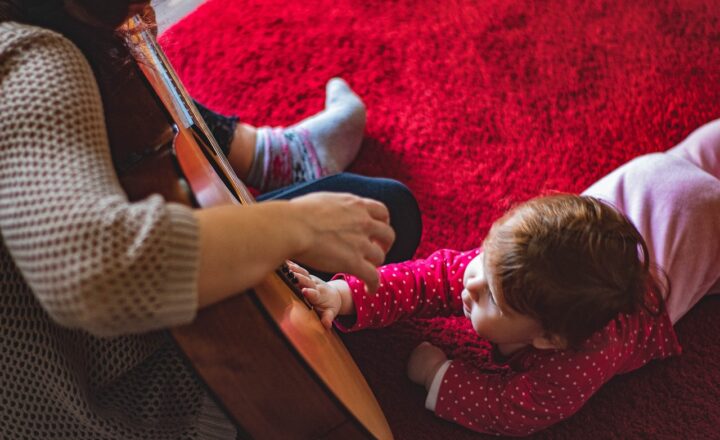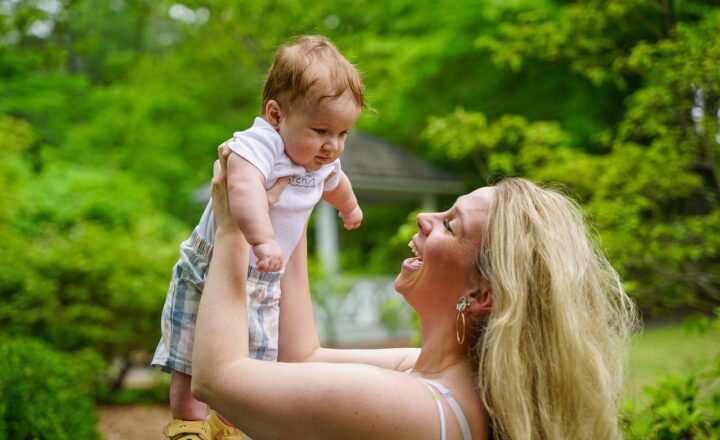
Being a good role model for your kids is one of the most crucial responsibilities you have as a parent or guardian. Children are impressionable, and they learn more from what they observe than what they are told. As they grow, they develop their values, beliefs, and behaviors based on their interactions with those they look up to. Therefore, understanding how to embody the characteristics of a good role model and integrating them into your daily life can significantly impact your child’s development.
1. Understanding the Importance of Role Modeling
Before diving into how to be a good role model, it’s vital to understand why this role is so important. Role models play a significant part in shaping children’s lives. Children observe their parents’ actions, decisions, and behaviors in various situations, and these lessons form the foundation of their personal values. Here are a few reasons why being a positive role model is essential:
- Character Development: Children learn integrity, empathy, and resilience by observing their parents’ behavior in everyday life. Setting a consistent example reinforces these essential traits in your children.
- Influencing Self-Esteem: Children who see their parents engage in positive behaviors often develop higher self-esteem and confidence. When kids see adults handling situations well, they are likely to mirror that behavior in their own lives.
- Guiding Decision-Making: Kids look to their parents when faced with difficult decisions. By demonstrating thoughtful decision-making skills, you equip your children with tools to make wise choices in their own lives.
Within this frame, let’s explore specific strategies to become a good role model for your kids.
2. Practice What You Preach
One of the most effective ways to be a good role model is to align your actions with your words. If you tell your kids about the importance of honesty, it is crucial that you also demonstrate honesty in your everyday life. Here are some actionable tips to follow:
- Be transparent with your emotions. Share appropriate feelings and thoughts about daily situations, allowing your children to see your genuine reactions.
- If you make a mistake, own up to it. Apologizing shows humility and teaches your children the importance of taking responsibility for their actions.
- Set and adhere to boundaries. If you emphasize the importance of rules, ensure that you also respect them and convey their significance through your behavior.
Remember that consistency between your words and actions strengthens your children’s understanding of important life principles.
3. Demonstrate Healthy Relationships
The way you engage with others profoundly influences how your children perceive and develop relationships. Healthy relationship modeling involves:
- Respectful Communication: Show respect in the way you communicate with your partner, family members, and friends. Use active listening and speak kind words to foster positive interactions.
- Conflict Resolution: Inevitably, conflicts arise. Demonstrate how to resolve misunderstandings amicably by talking through disagreements and seeking compromises. Your children will learn the value of dialogue and negotiation through your example.
- Expressing Affection: Show love and care towards family members. Simple gestures such as hugs, compliments, or acts of kindness highlight the importance of openness and support in relationships.
By modeling healthy relationships, you help your children develop emotional intelligence and interpersonal skills.
4. Encourage a Growth Mindset
Fostering a growth mindset in your children encourages them to embrace challenges and view failures as learning opportunities. Here are some effective ways to model a growth mindset:
- Embrace Challenges: Share personal stories about overcoming challenges and setbacks in your own life. Discuss the strategies you used to learn from these experiences and how they contributed to your growth.
- Persevere: When things become difficult, maintain a positive attitude and demonstrate persistence. Your determination during tough times can inspire the same in your children.
- Value Feedback: Show openness to constructive criticism. Discuss how feedback has helped you learn and grow, reinforcing the importance of continuous self-improvement.
Teaching your kids that their abilities can be developed through effort and practice instills confidence and resilience.
5. Model Healthy Lifestyle Choices
Your health behaviors significantly influence your children’s lifestyle choices. By practicing healthy habits, you set a precedent for your children to follow. Focus on these key areas:
- Physical Activity: Engage in physical activities together as a family, whether it’s hiking, biking, or playing sports. Demonstrating your commitment to fitness instills its importance in your kids’ minds.
- Healthy Eating Habits: Prepare and enjoy nutritious meals as a family. Discuss the benefits of healthy foods and encourage them to make balanced choices.
- Mental Health Awareness: Prioritize mental well-being by promoting activities like mindfulness, meditation, or simply discussing feelings openly. Show that taking care of your mental health is just as essential as physical health.
By modeling healthy lifestyle choices, you empower your children to adopt beneficial habits that can last a lifetime.
6. Show Kindness and Empathy
Exhibiting kindness and empathy is vital for helping children understand social dynamics and how to treat others. Here are some strategies to model kindness:
- Acts of Kindness: Engage in random acts of kindness together. Whether volunteering in the community or helping a neighbor, taking action teaches children the value of giving back.
- Talk About Feelings: When discussing feelings, encourage your children to identify their emotions and the emotions of others. Being attuned to emotional cues builds their empathy towards others.
- Encourage Inclusion: Promote the importance of including others and standing against bullying by discussing the impact of exclusion and showing support for those who may be marginalized.
Teaching kindness and empathy prepares your children for meaningful interactions and relationships throughout their lives.
7. Conclusion
Being a good role model for your kids is a continuous journey that requires reflection, intentionality, and authenticity. By aligning your behavior with the values you want to instill, you create a nurturing environment that encourages your children to develop into individuals with strong character and positive behaviors. Ultimately, the investment you make in modeling positive traits today will reap benefits in their future relationships, decision-making, and overall well-being. It’s an opportunity to inspire the next generation, and every effort you make counts toward crafting a better tomorrow for your kids.
Kids learn best through example—be the role model who inspires!







